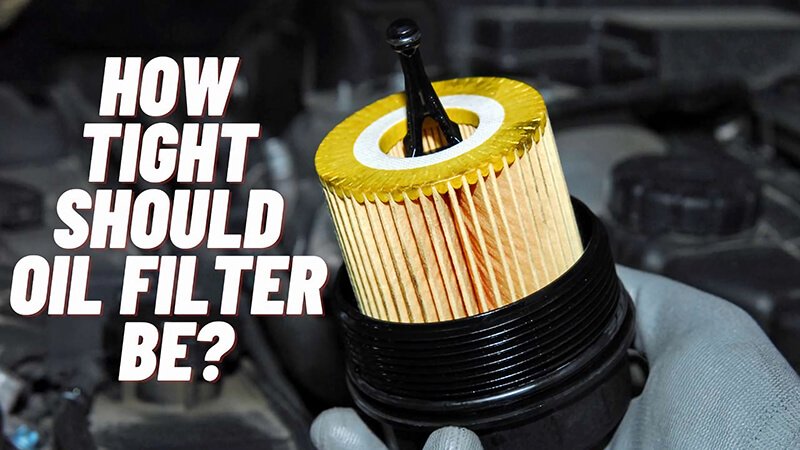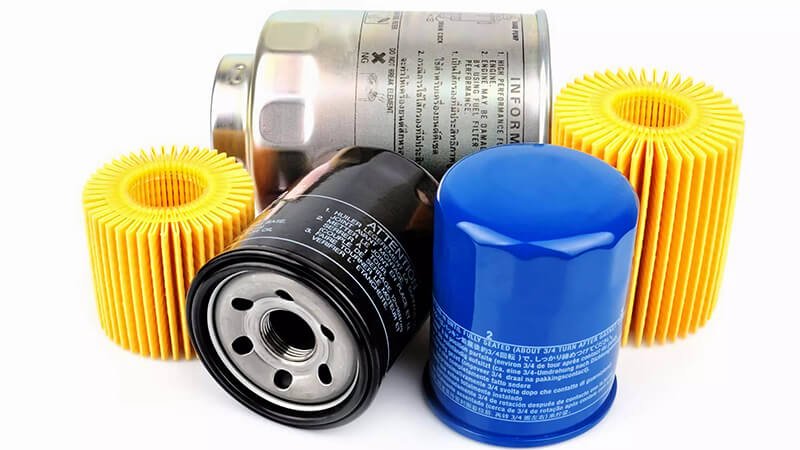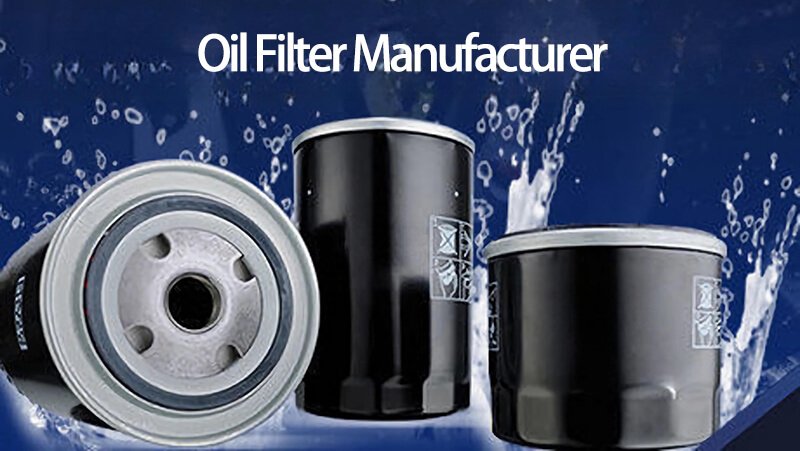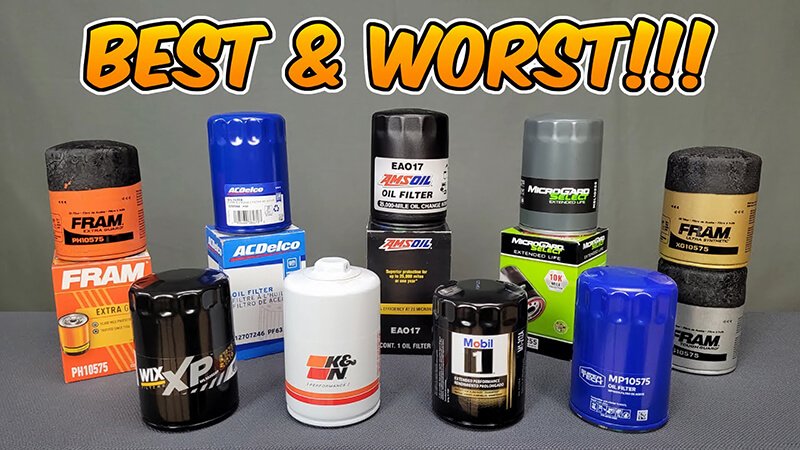If you’re new to car maintenance, buying the right oil filter might seem overwhelming. But choosing the right one is crucial to your engine’s health and longevity. Let’s walk through the basics to help you make an informed decision.
When buying an oil filter, consider your vehicle’s requirements, your driving habits, and the type of oil you use. Understanding these factors will guide you in choosing the right filter to keep your engine running smoothly.
Now that you know the importance of choosing the right oil filter, let's dive deeper into the specifics of selecting the best one for your needs.

How do you know which oil filter to buy for your car?
Choosing the right oil filter is not one-size-fits-all. Every vehicle has its own set of requirements based on engine size1, model2, and manufacturer specifications3. Let’s break down the key factors to consider when making your choice.
The best way to know which oil filter to buy is to check your car’s manual. The manufacturer will list the recommended oil filter type. Other factors like engine size and oil type also play a role in this decision.
Knowing which oil filter is right for your car requires considering a few essential details. Let’s break these factors down further to ensure you make the best choice:
1. Vehicle Specifications
The first step in choosing an oil filter is to refer to your vehicle's manual. Car manufacturers specify the type of oil filter that should be used based on engine design, size, and oil system requirements. Here’s a basic outline of the important specifications to consider:
| Vehicle Type | Recommended Oil Filter Type | Key Features |
|---|---|---|
| Compact Cars | Standard or Cartridge Filter | Ideal for light-duty engines |
| Sedans/SUVs | Spin-on Filters | Designed for medium-duty engines |
| Trucks/Heavy-duty | High-performance Filters | Heavy-duty filtration systems |
In addition to the filter type, it’s crucial to follow the manufacturer's oil change intervals and specifications. Always ensure the part number matches what’s listed for your vehicle.
2. Engine Size and Type
The engine size plays a critical role in the oil filter selection. Larger engines require filters that can handle more oil and higher pressure. For instance:
- Small engines (under 2.0L) can generally use standard filters.
- Larger engines (above 3.0L) may need heavy-duty or high-performance filters that offer better filtration.
If your engine is turbocharged or has higher performance, it’s important to select a filter that can withstand the increased heat and pressure. High-performance filters usually have better filtration and can handle these demands effectively.
3. Oil Type
The type of oil used in your vehicle—whether conventional, synthetic, or synthetic blend—can influence the choice of oil filter. Synthetic oils are designed to flow better and last longer, but they require filters that can deal with their finer particles and more demanding conditions.
| Oil Type | Best Oil Filter Type | Why It's Necessary |
|---|---|---|
| Conventional Oil | Standard Cartridge or Spin-on | Basic filtration is sufficient |
| Synthetic Oil | High-Performance Filters | Finer filtration and durability |
| Synthetic Blend | Semi-synthetic Filters | Balanced filtration for performance |
Choosing the right filter based on your oil type ensures you get the most out of both the filter and oil, preventing damage to your engine and enhancing performance.
By considering your vehicle’s specifics and oil preferences, you can confidently choose the best oil filter.

What oil filter is best for synthetic oil?
If you use synthetic oil in your vehicle, you’ll need an oil filter that can handle the unique demands of synthetic lubricants4. Let’s explore which oil filters are best suited for synthetic oils5.
For synthetic oils, it's recommended to use high-quality filters that provide enhanced filtration. These filters typically have stronger materials and are designed to handle the finer particles found in synthetic oil.
Choosing the right oil filter for synthetic oil involves looking at specific features designed to enhance the filtration process. Here's what you should know:
1. Advanced Filtration Technology
Synthetic oils are typically refined to a higher standard, meaning they contain finer particles and fewer impurities. To ensure that these particles don't harm your engine, you’ll need a filter designed to handle such precise filtration. Filters designed for synthetic oil often feature advanced filtration technologies6 like synthetic fibers or pleated paper designs that improve filtration efficiency and longevity.
| Filter Type | Filtration Efficiency | Material Composition |
|---|---|---|
| Standard Filters | Standard filtration (larger particles) | Basic paper or cellulose |
| Synthetic Filters | Higher filtration (finer particles) | Synthetic fibers or pleated paper |
These advanced filters can capture smaller particles and contaminants more efficiently, leading to cleaner oil and better protection for your engine.
2. Durability and Longevity
Synthetic oil generally lasts longer than conventional oils, and so do synthetic oil filters. These filters are often designed to be more durable and able to withstand the extended oil change intervals that synthetic oils offer. By choosing a filter that’s built to last, you can ensure that the filtration system works optimally throughout the oil change cycle.
| Filter Durability | Synthetic Oil Compatibility | Recommended Oil Change Interval |
|---|---|---|
| Standard | Less suited for longer intervals | 3,000 - 5,000 miles |
| Synthetic | Ideal for longer intervals | 7,000 - 10,000 miles |
3. Compatibility with High-Performance Engines
If you drive a high-performance vehicle, especially one that requires synthetic oil, you’ll need an oil filter that can handle the higher pressures and temperatures that come with more powerful engines. High-performance filters are designed to work seamlessly with synthetic oils, offering better filtration and longer-lasting protection for the engine.
Choosing a high-quality filter designed for synthetic oil is a great way to ensure your engine is protected and running smoothly for longer periods between oil changes.

Should I buy a premium oil filter?
Premium oil filters promise superior performance and longevity, but are they worth the extra cost? Let’s explore whether investing in a premium oil filter7 is necessary for your car.
If you drive a performance vehicle8 or want to ensure maximum engine protection, premium oil filters might be worth considering. However, for regular vehicles and daily commutes, standard filters can be sufficient.
The decision to buy a premium oil filter depends on your vehicle’s needs and how you use it. Let’s break down why some might benefit from a premium filter, while others may not need to invest in one:
1. High-Performance Vehicles
If you own a high-performance vehicle9 or luxury vehicle10, a premium oil filter might be the best choice. These filters are designed to offer superior filtration, extended oil change intervals, and better protection for high-revving engines. If you push your car’s limits or drive in harsh conditions, a premium filter can ensure your engine stays clean and protected from dirt, debris, and contaminants.
| Vehicle Type | Filter Recommendation | Why It's Best |
|---|---|---|
| High-Performance Cars | Premium High-Performance Filter | Better protection, high durability |
| Regular Cars | Standard or Semi-Performance Filter | Sufficient for daily driving |
2. Extended Oil Change Intervals
Many premium oil filters are designed to last longer than standard ones, which means they are a good option if you plan to extend the time between oil changes. This can be a cost-saving advantage in the long run, as you won’t need to change the filter as often.
| Oil Filter Type | Change Interval | Cost-Effectiveness |
|---|---|---|
| Standard Filters | 3,000 - 5,000 miles | More frequent changes |
| Premium Filters | 7,000 - 15,000 miles | Fewer changes, higher cost |
3. For Peace of Mind
If you prefer peace of mind knowing that you are using the best quality filter available, a premium oil filter might be worth the investment. Premium filters are built to perform at the highest level, providing better engine protection and ensuring that your vehicle runs at its best.
While premium filters are not necessary for all vehicles, they are ideal for performance cars, long-term use, and those who want extra assurance.

Is there a difference between cheap and expensive oil filters?
Oil filters can range in price, from budget-friendly options to premium ones11. But does the price reflect the quality? Let’s dive into the differences between cheap and expensive oil filters12.
While cheaper filters can be effective, they often lack the durability and filtration efficiency of more expensive options. Expensive filters tend to last longer, provide better protection, and are made with superior materials.
The main difference between cheap and expensive oil filters lies in the materials used, filtration technology13, and durability. Let’s look at these factors more closely:
1. Filtration Efficiency
Expensive oil filters typically offer better filtration because they are made from higher-quality materials. High-end filters have finer filter media, which allows them to capture smaller particles and contaminants that might be missed by cheaper filters. This results in cleaner oil and better protection for your engine over time.
| Filter Type | Filtration Efficiency | Materials Used |
|---|---|---|
| Cheap Filters | Lower efficiency (larger particles) | Paper, cardboard |
| Expensive Filters | Higher efficiency (finer particles) | Synthetic fibers, pleated paper |
2. Durability and Build Quality
Premium oil filters are usually made with stronger, more durable materials. This means they are less likely to break down or clog over time. In contrast, cheaper filters may be prone to damage under high pressure or high temperatures, which can lead to reduced performance and potential engine issues.
| Filter Quality | Durability | Common Materials |
|---|---|---|
| Cheap Filters | Less durable, prone to clogging | Basic paper, low-grade metals |
| Expensive Filters | More durable, less clogging | High-quality materials, strong construction |
3. Materials and Construction
Cheaper filters often use basic filter media like cardboard or low-grade paper, while expensive filters tend to use advanced materials like synthetic fibers or metal mesh. These materials enhance the filter's ability to capture debris and withstand pressure, resulting in longer-lasting and more efficient performance.
While a cheap filter may be sufficient for short-term use, investing in a higher-quality filter can pay off in the long run, offering better protection and reducing the risk of engine problems.

Conclusion
When buying an oil filter for your car, the most important factors to consider are your vehicle's specifications, the type of oil you use, and your driving habits. Whether you choose a premium or standard filter depends on your needs, but always remember that the right oil filter ensures the longevity and performance of your engine.
-
Learn how engine size influences oil filter selection and which sizes require specific filters. ↩
-
Understand the importance of matching the right oil filter with your car model. ↩
-
Discover why it's crucial to follow manufacturer specifications for oil filter compatibility. ↩
-
Learn what synthetic lubricants are and why they require specific oil filters. ↩
-
Discover which oil filters are specifically designed for synthetic oils. ↩
-
Understand how advanced filtration technology improves oil filter efficiency and engine protection. ↩
-
Learn the advantages of premium oil filters over standard filters for enhanced engine protection. ↩
-
Understand why performance vehicles require specific oil filters for optimal engine health. ↩
-
Discover how high-performance vehicles benefit from premium oil filters. ↩
-
Find out why luxury vehicles are best paired with premium oil filters for better protection. ↩
-
Learn how premium oil filters outperform cheaper ones in durability and protection. ↩
-
Understand the main factors that differentiate budget and high-end oil filters. ↩
-
Discover how advanced filtration technology improves the performance of oil filters. ↩












